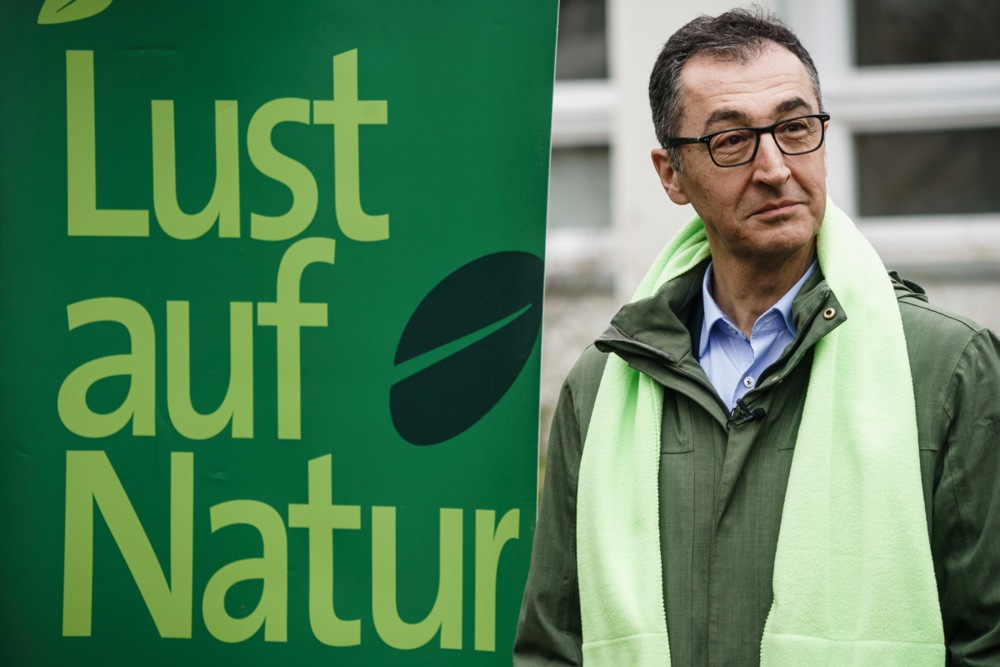On August 16, Germany’s Cabinet approved a controversial bill to legalise the recreational use and cultivation of marijuana under what would be among the most progressive cannabis regulations in Europe.
Regarding the proposed legislation, health minister Karl Lauterbach of the Social Democratic Party (SPD) said in a joint statement with the health ministry and the agriculture ministry: “No one should falsely understand the law. The consumption of cannabis will be legalised but it remains dangerous.”
The planned legislation was not received with universal support. Among numerous dissenting voices, criticism came from Andy Grote, the interior minister of the city-state of Hamburg and a member of Lauterbach’s centre-left SPD, who stated: “This law is unnecessary. Experiences from other countries demonstrate that legalisation triggers a significant surge in consumption, with all its associated risks and side effects.”
The bill seeks to decriminalise possession of up to 25 grammes and allow members of “cannabis clubs” to buy the substance for recreational purposes. It also allows individuals to grow up to three marijuana plants for personal use.
Under the new laws, adults in Germany will have the opportunity to participate in non-profit “cannabis clubs”, each limited to a maximum of 500 members. These would be permitted to cultivate cannabis for the personal use of their members.
Adults will be allowed to buy a maximum of 25 grammes per day or a monthly allowance of 30 grammes for those aged 18-21. It would not be permissible to be a member of multiple cannabis clubs, which would be funded through membership dues. They would be structured based on the quantity of cannabis used by the members.
Club members will be prohibited from using cannabis on club premises or within a 200-metre radius of the establishment. Additionally, the clubs themselves must be situated more than 200 metres away from schools, day care centres, or kindergartens.
The initial phase of the legislation involves decriminalisation.
Subsequently, specialised stores will be authorised to sell cannabis and items containing the active ingredient THC. To start with, that will be restricted to specific districts and cities, designated as “model regions” for a duration of five years.
A fundamental aspect of the strategy, designed to eliminate the stigma associated with cannabis usage, involves a concerted effort to enhance understanding of related hazards. This initiative, according to Lauterbach, is anticipated to ultimately lead to a reduction in consumption.
He described the proposed bill as a “pivotal moment”, signalling a departure from previous unsuccessful cannabis policies.
But he added: “The protection of children and teenagers is a central element of the entire legislative project,” referring to a youth information campaign titled Legal, but … that will be launched by the health ministry.
Die derzeitige Cannabis-Drogenpolitik ist gescheitert, sagt Bundesgesundheitsminister @Karl_Lauterbach im @heutejournal und verteidigt seine Pläne zu teilweisen Legalisierung von #Cannabis.
Das Interview in der ZDF-Mediathek. Lauterbach zur Cannabis-Politik – ZDFmediathek pic.twitter.com/lJHrasZWgU— ZDF heute journal (@heutejournal) August 16, 2023
With the planned legislation, authorities aim to counter the black market for cannabis, protect consumers regarding safety of the product and tackle criminal activity associated with illicit drugs.
“We are not creating a problem,” Lauterbach stated earlier this year. “We are trying to solve a problem.
“We have rising, problematic consumption, we couldn’t simply allow this to go on,” he said. “So this is an important turning point in our drug policy.”
In 2021, the percentage of young adults in Germany aged 18 to 25 who had tried cannabis at least once almost doubled from the previous decade, reaching 25 per cent, as reported by the health ministry. Due to their increased susceptibility regarding potential negative health implications of cannabis, young adults are a “demographic of concern”.
Agriculture minister Cem Özdemir called the draft legislation “a significant step toward a progressive, reality-based drugs policy.”
„Ich freue mich, dass heute ein bedeutender Schritt für eine fortschrittliche Drogenpolitik in Deutschland gemacht wurde. Wir werden den Umgang mit #Cannabis für Erwachsene neu gestalten.“ – @cem_ozedemir zum Kabinettsbeschluss für ein Cannabis-Gesetz. pic.twitter.com/CiRHWsNpb3
— BMEL (@bmel) August 16, 2023
Among critics of the bill, in a collective statement, five associations representing physicians specialising in children and young individuals, warned about the potential risk cannabis poses to the mental wellbeing and developmental prospects of young people in Germany.
The German Association of Judges also expressed concerns over the likelihood of increased workload for the judiciary due to the intricacy of regulations related to cannabis clubs and drug distribution. The German police union is also strongly opposed.
Conservative lawmakers from several states have likewise voiced their objections to the proposed law, deeming it “medically irresponsible” and labelling it an “assault on youth and health protection”.
Armin Schuster, the interior minister of the eastern state of Saxony, affiliated with the centre-right opposition Christian Democrats (CDU), claimed the law would result in “a complete loss of control”.
Grote also raised doubts about the often-asserted claim by proponents that the legalisation of recreational cannabis use will lead to a decrease in black-market marijuana trading. “It is to be feared that illegal cannabis will be much in demand because of its higher potency and cheaper prices and that the black market and legal market will become mixed up together,” he said.
Grote said the regulation of cannabis use would require “a comprehensive bureaucracy of cannabis surveillance” to ensure that all its stipulations are upheld.
Even deputies from the SPD’s coalition partner, the neoliberal Free Democrats who generally approve of cannabis legalisation, warned that the proposed legislation would create a “bureaucratic monster”.
Germany’s hemp association chipped in, saying the rules were “unrealistic” and the black market could only truly be fought if all shops were allowed to sell cannabis openly.
Das #Bundeskabinett hat die #Pläne von #Bundesgesundheitsminister Karl #Lauterbach für eine weitgehende #Legalisierung von #Cannabis gebilligt:https://t.co/94740FZ5DA pic.twitter.com/TD2HVswL5g
— Deutschland Kurier (@Deu_Kurier) August 16, 2023





